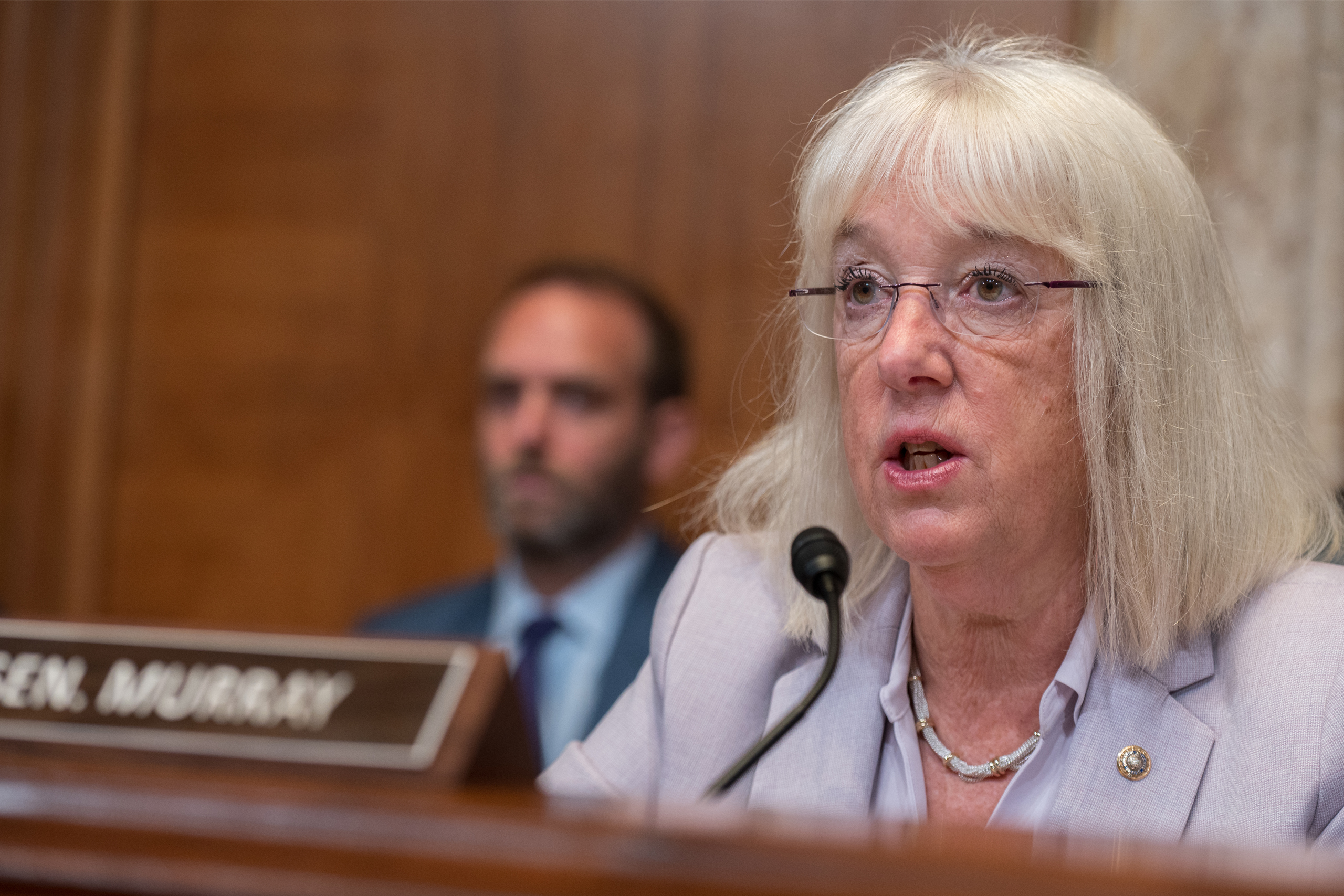Senator Murray: “The federal government has a moral and legal obligation to clean up the Hanford Site and failure to adequately fund the mission there jeopardizes that promise.”
***WATCH SENATOR MURRAY’S FULL QUESTIONING HERE***
(Washington, D.C.) – Today, during a Senate Appropriations Subcommittee on Energy & Water hearing, U.S. Senator Patty Murray (D-WA), a senior member of the Senate Appropriations Committee, questioned U.S. Secretary of Energy Jennifer Granholm on President Biden’s annual budget request for the Department of Energy.
During the hearing, Senator Murray highlighted that the FY23 request for the Hanford Site is well below the FY22 requested and enacted levels. Senator Murray pressured the Energy Secretary to justify why Hanford is receiving inadequate funding for the cleanup mission.
“The federal government has a moral and legal obligation to clean up the Hanford Site and failure to adequately fund the mission there really jeopardizes that promise. The FY22 Omnibus provided $2.6 billion for the site. Your Department’s FY23 request proposes cutting funding for the site by $172 million,” began Senator Murray. “It also fails to meet the funding needs that the Department itself has identified at the site. One area that really illustrates that disconnect is the River Corridor and Other Cleanup Operations account. The Department’s 2022 Hanford Lifecycle Report projected that this account needed $261.5 million to keep pace with the Tri-Party Agreement’s milestones. But your FY23 Budget only requests $135 million for this account. Do you believe that request is adequate?”
“I look forward to working with you on this. I know that we need to fund the commitments,” said Secretary Granholm.
“How did you get to that request? It’s half of what the Department says is required,” questioned Senator Murray.
“I understand. It’s honestly a question of balancing out what our numbers are across the whole Environmental Management Portfolio,” said Secretary Granholm.
“Well I assure you at the site, it’s not just numbers. It’s about an incredibly important site in this country and we have a requirement to make sure we clean that up,” said Senator Murray.
“Yes, I know and I so appreciate your advocacy on this and look forward to visiting,” said Secretary Granholm.
“It’s more than advocacy, it’s an obligation,” said Senator Murray.
Senator Murray also questioned Secretary Granholm why Building 324 was not receiving the funding needed to start the cleanup beneath the building and why the Department proposes major increases for nuclear weapons and naval reactors and proposes major decreases to clean-up sites like Hanford.
“Explain to us why the Department proposes major increases for nuclear weapons and naval reactors but cuts clean-up sites like Hanford,” asked Senator Murray.
“Again, this is a question of balancing equities across all of the portfolio at DOE. We believe Hanford is extremely important,” said Secretary Granholm. “It is the largest cleanup site that we have. We have other cleanup sites as you know across. We want to make sure that we do right by the whole of the budget and so it is a balance.”
“FY24 is going to be really critical for this site. I am really disappointed by this year’s request. We’ve got to do better than this,” said Senator Murray.
Senator Murray has led the fight in Congress to secure funding for the cleanup at the Hanford Site, protecting workers, and Washington communities. In the FY22 government funding package, Senator Murray secured $2.595 billion for the Hanford site cleanup—notably, this was $128 million above the President’s Budget Request. The last time Secretary Granholm appeared before the Senate Appropriations Subcommittee on Energy & Water in June of 2021, Senator Murray pressed her on the need for full funding of Payment in Lieu of Taxes (PILT) for Hanford to compensate local governments. In March 2021, Senator Murray reintroduced the Toxic Exposure Safety Act which would make it easier for workers at the Hanford site and other nuclear clean-up sites to receive the full benefits they’re entitled to when suffering from illnesses due to toxic exposure on the job.
###


